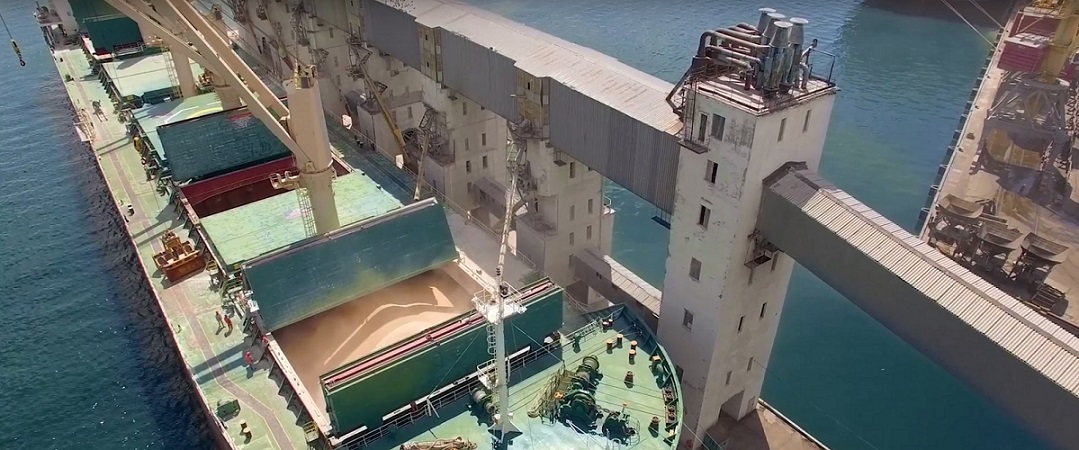Russia attacks Ukrainian ports after withdrawing from grain deal

A day after Russia suspended its participation in the Black Sea Grain Initiative (BSGI) facilitating Ukrainian grain exports, Russia launched an attack on Ukrainian ports.
At the time of the report, Moscow and Kyiv were giving vastly different accounts of fighting in northeastern Ukraine.
Russia claimed it had hit fuel storage facilities in Odessa and a plant making seaborne drones there, in retaliation for an alleged attack by Ukraine on the Kerch bridge linking Russia to Crimea.
Russia annexed Crimea from Ukraine in 2012 and two people and their daughter were killed in the bridge attack, the report said.
The 19km road and rail bridge is seen by Russia as a major transport asset for its troops fighting in Ukraine, according to the report.
The Kremlin said its withdrawal from the United Nations (UN)-brokered BSGI was not connected to the bridge attack.
“Unfortunately, the part of these Black Sea agreements concerning Russia has not been implemented so far, so its effect is terminated,” Kremlin spokesman Dmitry Peskov told reporters on a conference call.
Russia said it could return to the grain deal, but only if its demands were met for rules to be eased for its own exports of food and fertiliser, the report said.
UN spokesperson Stephane Dujarric was quoted as saying there were a “number of ideas being floated” to help deliver Ukrainian and Russian grain and fertiliser to global markets.
Moscow’s decision raised concern primarily in Africa and Asia of rising food prices and hunger, the report said.
In his nightly address, Ukraine’s President Volodymyr Zelenskiy was quoted as saying “we are fighting for global security and for our Ukrainian farmer” and working on options to keep commitments on food supply.
The BSGI was brokered by the UN and Turkey last July to combat a global food crisis worsened by Russia’s invasion of Ukraine last February and its subsequent blockade of Ukrainian ports. The two countries are among the world’s top agricultural producers, and major players in the wheat, barley, maize, rapeseed, rapeseed oil, sunflowerseed and sunflower oil markets. Russia is also dominant in the fertiliser market.
During negotiations to convince Russia to agree to the BSGI, a three-year deal was struck last July under which UN officials agreed to help Russia deliver its food and fertiliser exports to foreign markets.
While Russian exports of food and fertiliser are not subject to Western sanctions imposed after Russia’s invasion, Moscow has said restrictions on payments, logistics and insurance have amounted to a barrier to shipments, according to the report.
Russia has agreed three times in the past year to extend the BSGI, but also briefly suspended its participation at the end of October in response to a drone attack on its fleet in Crimea, the report said.
Russia has also complained that not enough grain has reached poor countries, according to the report.
However, the UN has argued that the arrangement had benefited those states by helping lower food prices by more than 20% globally.
Read also
Wheat in Southern Brazil Impacted by Dry Weather and Frosts
Oilseed Industry. Leaders and Strategies in the Times of a Great Change
Black Sea & Danube Region: Oilseed and Vegoil Markets Within Ongoing Transfor...
Serbia. The drought will cause extremely high losses for farmers this year
2023/24 Safrinha Corn in Brazil 91% Harvested
Write to us
Our manager will contact you soon



